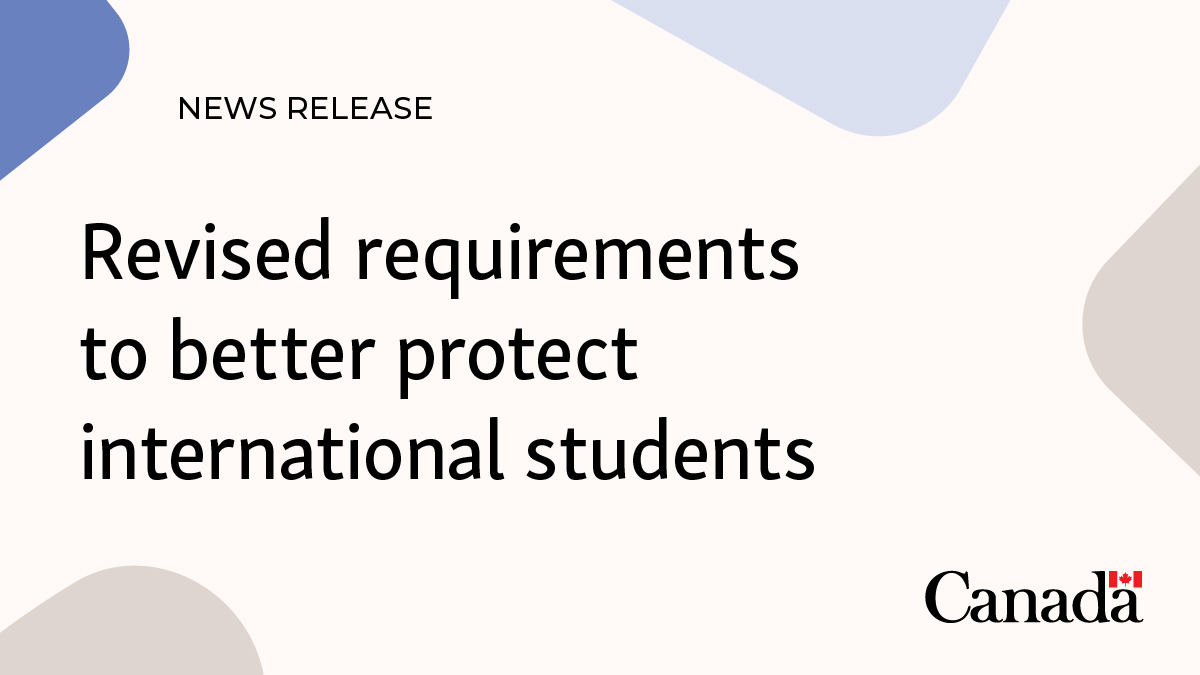

RCC: Better Protect International Students
December 7, 2023—Ottawa—Canada is a top destination for international students, thanks to our high-quality educational institutions; our welcoming, diverse society; and the opportunities for some to work or immigrate permanently after graduation. While international students have contributed to life on campuses and innovation across the country, they have also experienced some serious challenges, such as finding adequate housing, as they pursue their studies in Canada.
The Honourable Marc Miller, Minister of Immigration, Refugees and Citizenship, announced today that starting January 1, 2024, the cost-of-living financial requirement for study permit applicants will be raised so that international students are financially prepared for life in Canada. Moving forward, this threshold will be adjusted each year when Statistics Canada updates the low-income cut-off (LICO). LICO represents the minimum income necessary to ensure that an individual does not have to spend a greater than average portion of income on necessities.
The cost-of-living requirement for study permit applicants has not changed since the early 2000s, when it was set at $10,000 for a single applicant. As such, the financial requirement hasn’t kept up with the cost of living over time, resulting in students arriving in Canada only to learn that their funds aren’t adequate. For 2024, a single applicant will need to show they have $20,635, representing 75% of LICO, in addition to their first year of tuition and travel costs. This change will apply to new study permit applications received on or after January 1, 2024.
While this will help prevent student vulnerability and exploitation, we recognize that the impact of the change could vary depending on the applicant. Next year, in collaboration with partners, we intend to implement targeted pilots that will test new ideas aimed at helping underrepresented cohorts of international students pursue their studies in Canada.
Today’s announcement follows important reforms to the International Student Program announced on October 27, 2023, regarding the development of a new framework to recognize learning institutions that provide top-quality services and support, including housing, to international students. We expect learning institutions to only accept the number of students that they can provide adequate supports for, including housing options.
In welcoming international students, we have a responsibility to make sure that students are supported when they come to our country. Ahead of the September 2024 semester, we are prepared to take necessary measures, including limiting visas, to ensure that designated learning institutions provide adequate and sufficient student supports as part of the academic experience. In order to achieve this result, it is imperative to work together with provincial and territorial governments, learning institutions and other education stakeholders, so we can ensure international students are set up for success in Canada.
Minister Miller also provided an update on 3 temporary policies affecting international students that were all set to expire at the end of 2023, including the following:
We value the significant social, cultural and economic benefits that international students bring to Canada, and for those benefits to continue, we must tackle issues that have made some students vulnerable and have challenged the integrity of the International Student Program. With the long-overdue increase to the cost-of-living threshold, students arriving in Canada will be on a stronger financial footing as they begin their studies.
Page: 1 2
What are the requirements for becoming a Canadian citizen? To become a Canadian citizen, you…
Writing a letter of invitation doesn’t mean you’re legally responsible for the visitor once they…
As of January 28, 2025, Immigration, Refugees and Citizenship Canada (IRCC) has updated the health…
The Super Visa is a multiple-entry temporary resident visa (TRV), issued with a validity of…
The Super Visa is a multiple-entry temporary resident visa (TRV), issued with a validity of…
If you applied for a new temporary resident visa, or a study or temporary work…